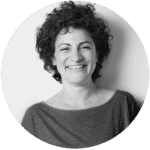
The house is located in real-estate project of vineyards in the Uco’s Valley, south of the city of Mendoza. It was designed for an Ecuadorian family who plans to spend the harvest season there. At the same site there is also a vineyard with different strains that will produce wine to be aged in the House´s wine cellar.
It is a traditional program: a large space with living, dining room, the kitchen and the gallery facing west. Three suite bedrooms, reading areas, wine cellar, garage and service areas.

The first was to reflect on the meaning of architecture in such landscapes, we are thinking about the vast territory preceding the Andes Mountains. It is a place where buildings can be seen from the distance as landscape elements over the vineyard. We try to be sensitive to this condition and think of a project that can resist the human perception, close and haptic; and the perception related to the landscape, distant and blurred. We thought of an element that understands these two scales, where its shape can be part of the landscape.

The second was to think of the placing, in relation to proximity. The vineyards crops reach almost 2.50m high in summer blocking close views. The operation was to define a base where the house stands: a concrete podium which is part of the soil, sharing its material nature; and a concrete piece rusted steel coated over this podium, that keeps the same mineral condition.

The first layer in contact with the ground is blind, restrained, with controlled natural light. It builds the access, contains the wine cellar and service areas. On top of this ground layer stands an excavated concrete solid, a prism with five that are the openings of the house: four large horizontal openings oriented to each cardinal point. Each of them is designed and calibrated regarding the portion of landscape it looks at; and then a vertical opening in the center of the house, a patio that throughs the house from the ground, connecting ground and sky.

The program is organized from these deep openings, the patio being the pivot of the experience, and the concrete base as the necessary expansion exterior area of the house.
Because the weather in the Uco’s Valley is extreme: wide temperature range, cool nights and sunny days, the house was rotated 45 degrees from the cardinal axes to minimize the impact of excessive sunlight, especially west.

Defining the common rusty metal coating is also a consequence of the need to isolate the house to ensure appropriate climatic behavior.
The basement’s concrete formwork is made of 6-inch pine timber, contrasting the upper’s subtle steel formwork concrete and the large openings coated in laurel wood.
Project Details:
Location: Tunuyán, Mendoza, Argentina
Area: 510 sqm
Architects: A4estudio
Team: Juan Manuel Filice + Leonardo Codina Architects


